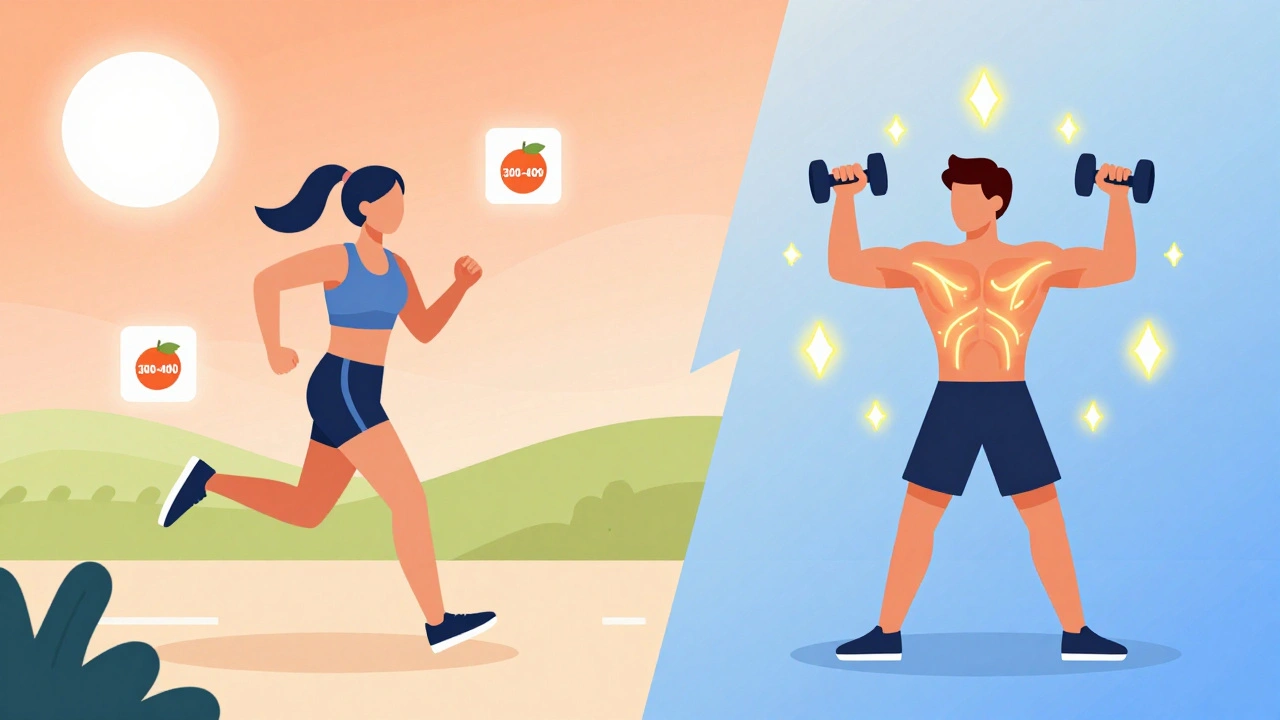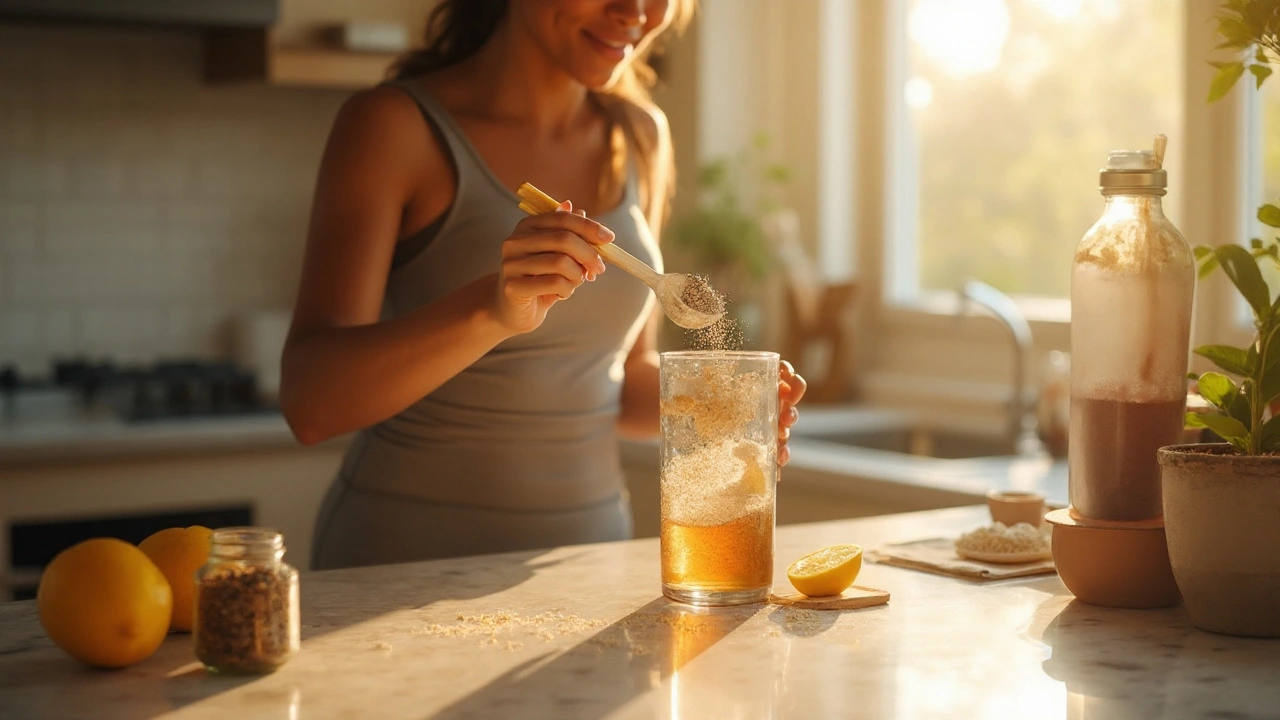Health & Wellness: Practical Tips for Better Living
Feeling good starts with simple choices you can make every day. Whether you want a smoother gut, calmer mind, or more energy, a few small habits go a long way. Below you’ll find clear, down‑to‑earth advice that you can try right now, plus quick tricks for New Zealand readers who like to shop locally.
Fiber for Digestive Health
If your mornings feel sluggish or you’re battling occasional constipation, blond psyllium is worth a look. It’s a form of soluble fiber that swells in your gut, creating a gentle bulk that pushes waste through. A typical dose is one to two teaspoons mixed with water or juice, taken once a day. Stir it quickly, drink the mixture within a few minutes, and follow with an extra glass of water to keep things moving.
Why blond psyllium? It’s low‑in‑calorie, grain‑free, and works well for people who avoid gluten. The fiber feeds good bacteria, which can improve overall gut health and even support a steadier mood. If you’re buying in New Zealand, look for brands that list “blond psyllium husk” on the label and have a clear expiry date. Most health stores carry it in the supplement aisle, and a 200‑gram pack usually lasts a month or more.
People often wonder whether they can add psyllium to recipes. Absolutely—mix it into smoothies, oatmeal, or even homemade muffins. Just remember it thickens quickly, so adjust liquids accordingly. If you notice gas or bloating at first, back off the dose and increase it gradually over a week.
Music Therapy for Chronic Conditions
Music isn’t just background noise; it can be a therapeutic tool, especially for relapsing‑remitting diseases like multiple sclerosis. Studies show that rhythmic auditory stimulation can improve gait, reduce fatigue, and lower anxiety. The key is to pick music that matches the tempo you want to achieve—usually around 120 beats per minute for walking exercises.
Start by setting aside 10–15 minutes each day for a focused listening session. Choose instrumental tracks or songs with steady beats, volume at a comfortable level, and avoid sudden loud bursts that could startle you. If you have access to a physiotherapist, ask them to help you design a music‑guided movement routine.
In New Zealand, many community centers and MS societies run music‑therapy groups, often free or low‑cost. Joining a group adds social support and gives you a chance to track progress together. Keep a simple journal: note the songs you used, how you felt, and any changes in symptoms. Over weeks, patterns emerge, and you can fine‑tune the playlist for maximum benefit.
Beyond these two topics, blending good nutrition with stress‑relief practices builds a solid foundation for overall wellness. Aim for at least five servings of fruits and veggies daily, stay hydrated, and move your body for a few minutes each hour—whether it’s a stretch, a short walk, or a quick dance to your favorite track.
Remember, the goal isn’t perfection but consistency. Pick one tip—like adding blond psyllium to breakfast or listening to calming music before bed—and stick with it for a couple of weeks. Small, steady steps add up to noticeable improvements in how you feel, think, and live.
Exercise for Weight Loss: Cardio vs. Strength Training - What Actually Works
- Benjamin Aghaki-Allen
- Health & Wellness
- 11 comment
Cardio burns calories fast, but strength training changes your metabolism for good. The best weight loss strategy combines both - not one or the other. Learn how to use each effectively and avoid common mistakes.
VIEW MOREBlond Psyllium Daily: Benefits, Dosage, and How to Use for Digestive Health
- Benjamin Aghaki-Allen
- Health & Wellness
- 7 comment
A clear, practical guide to blond psyllium for daily digestive health: benefits, dosing, mixing, safety, NZ-focused buying tips, recipes, and troubleshooting.
VIEW MOREMusic Therapy for Relapsing‑Remitting Disease: Evidence, How-To, and 2025 Care Tips
- Benjamin Aghaki-Allen
- Health & Wellness
- 5 comment
Clear, evidence-backed guide on using music therapy for relapsing-remitting conditions like MS. When it helps, how to do it, safety tips, NZ access, and tracking.
VIEW MORETangerine Supplements Explained: Benefits, Bioavailability & Buying Guide
- Benjamin Aghaki-Allen
- Health & Wellness
- 19 comment
Discover how tangerine supplements deliver antioxidant power, boost immunity, and improve nutrient absorption. A practical guide with science, safety tips, and buying advice.
VIEW MOREWheat Bran Supplement: Boost Gut Health, Lower Cholesterol & Manage Weight
- Benjamin Aghaki-Allen
- Health & Wellness
- 17 comment
Discover how wheat bran, a fiber‑rich supplement, can improve digestion, lower cholesterol, balance blood sugar, support weight loss, and reduce disease risk.
VIEW MOREBoost Your Wellness Routine with Cherry Laurel Water - The Trending Supplement
- Benjamin Aghaki-Allen
- Health & Wellness
- 8 comment
Discover why Cherry Laurel Water is revolutionizing wellness routines, its unique benefits, how it compares to other supplements, and practical tips for safe daily use.
VIEW MORECategories
Popular posts
-
How to Read Medication Labels: Dosage, Directions, and Safety Tips
Benjamin Aghaki-Allen -
Direct-to-Consumer Generic Pharmacies: How Much You Really Save vs Insurance
Benjamin Aghaki-Allen -
Calcium Carbonate and Climate Change: Roles, Risks, and Real Solutions (2025 Guide)
Benjamin Aghaki-Allen -
Atomoxetine and Emotional Eating: What You Need to Know
Benjamin Aghaki-Allen -
The Benefits of Lisinopril for Treating High Blood Pressure
Benjamin Aghaki-Allen
Popular tags
- side effects
- medication safety
- online pharmacy
- generic drugs
- medication errors
- drug side effects
- dietary supplement
- gut health
- blood pressure medication
- alternatives
- medication adherence
- Hatch-Waxman Act
- drug interactions
- weight loss
- dosage
- weight management
- quality of life
- cheap generic Zoloft
- affordable sertraline
- Claritin





